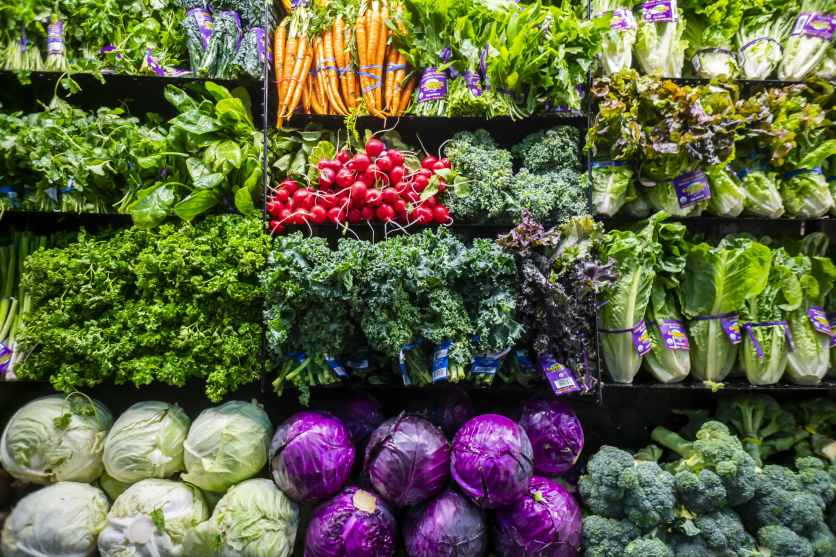Food banks across the United States are struggling amid droves of hungry Americans in need of a meal. And images from photographers around the country show the horrifying number of Americans lining up to receive food assistance.
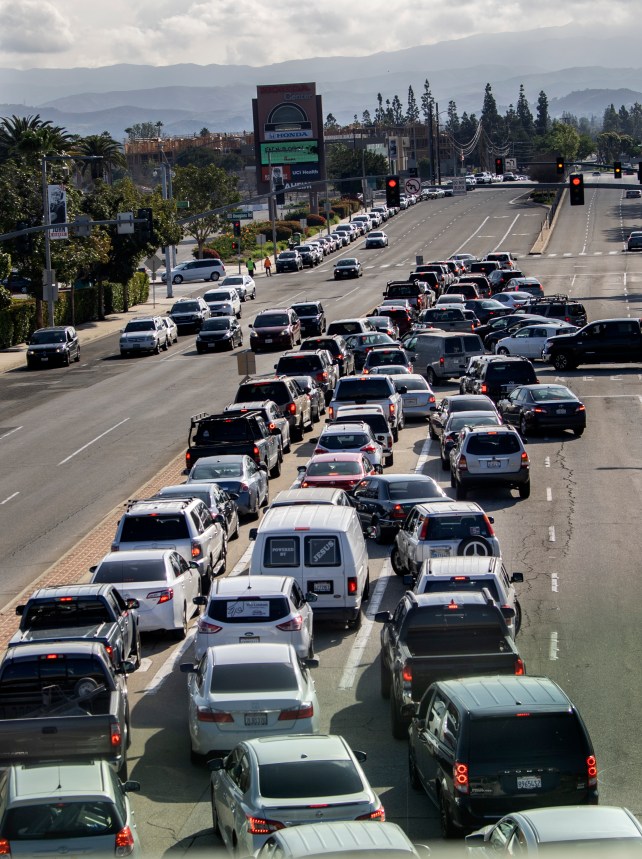
Anaheim, California: Cars were lined up about a half mile long in both directions of the 57 Freeway to get to Second Harvest Food Bank
Mindy Schauer/MediaNews Group/Orange County Register/Getty
“We’re looking at an increase of 17.1 million people over the course of the next six months,” Claire Babineaux-Fontenot, CEO of Feeding America, one of the country’s largest hunger-relief organizations, told NBC News. Babineaux-Fontenot highlighted a 98 percent increase in demand for free food and Feeding America, expects to lose $1.4 billion trying to survive.
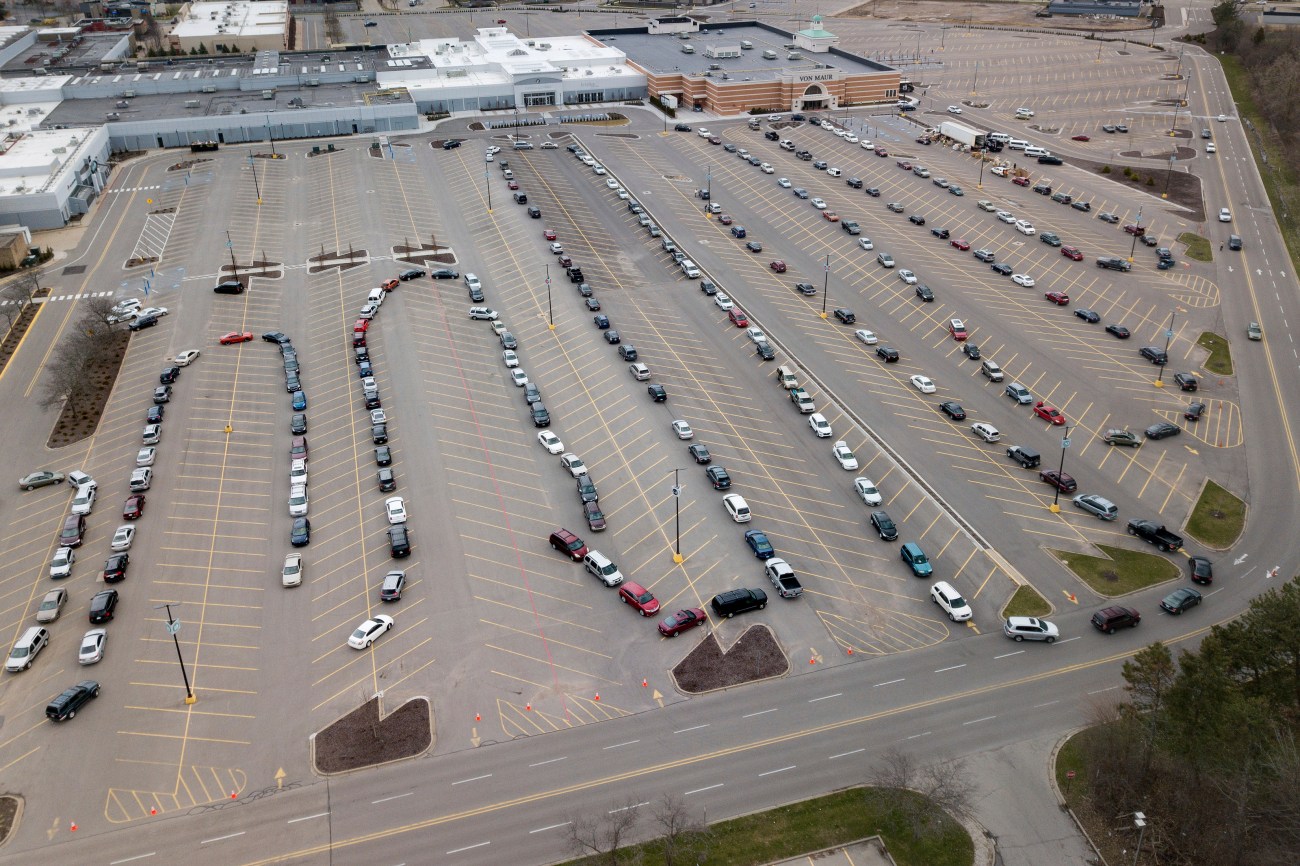
Minneapolis, Minnesota: Cars line up at a drive-thru food pantry.
Neil Blake/Grand Rapids Press/AP
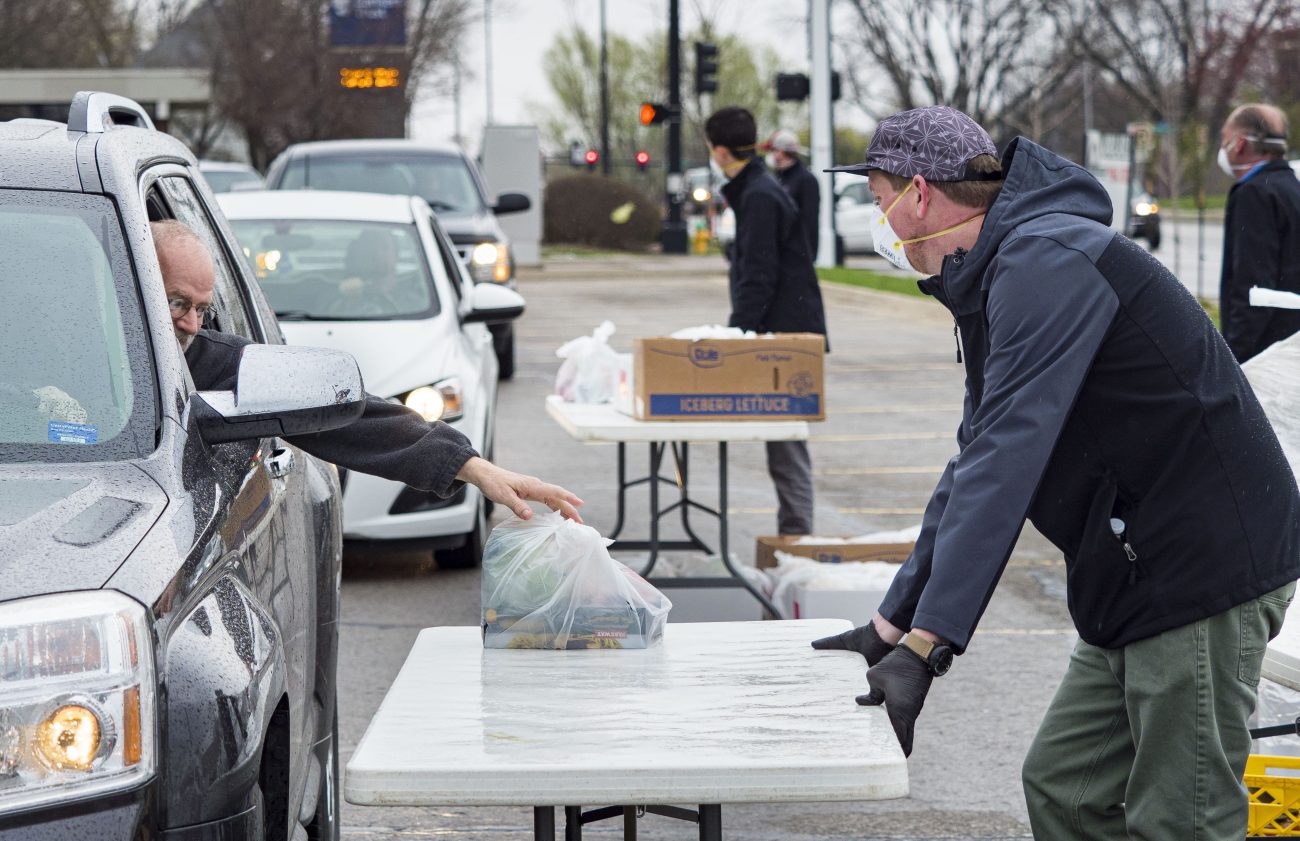
Des Moines, Iowa: Over 100,000 Iowans filed first time claims for unemployment in the last three weeks. People started lining up 3 hours before the food distribution began.
Jack Kurtz/ZUMA
In San Antonio, ten thousand cars waited at a food distribution point run by the San Antonio Food Bank. CEO Eric Cooper told NBC’s Hoda Kotb on the Today Show that the bank typically feeds about 60,000 people a week—it’s now about 120,000 people a week.
According to the Guardian, the number of people lining up in Phoenix, Arizona has tripled. Across southern Arizona, it doubled. In Las Vegas, where demand is up by 30 percent, one of the largest food pantries has shuttered 170 out of 180 locations. In Massachusetts, food pantries increased distribution by 849 percent.
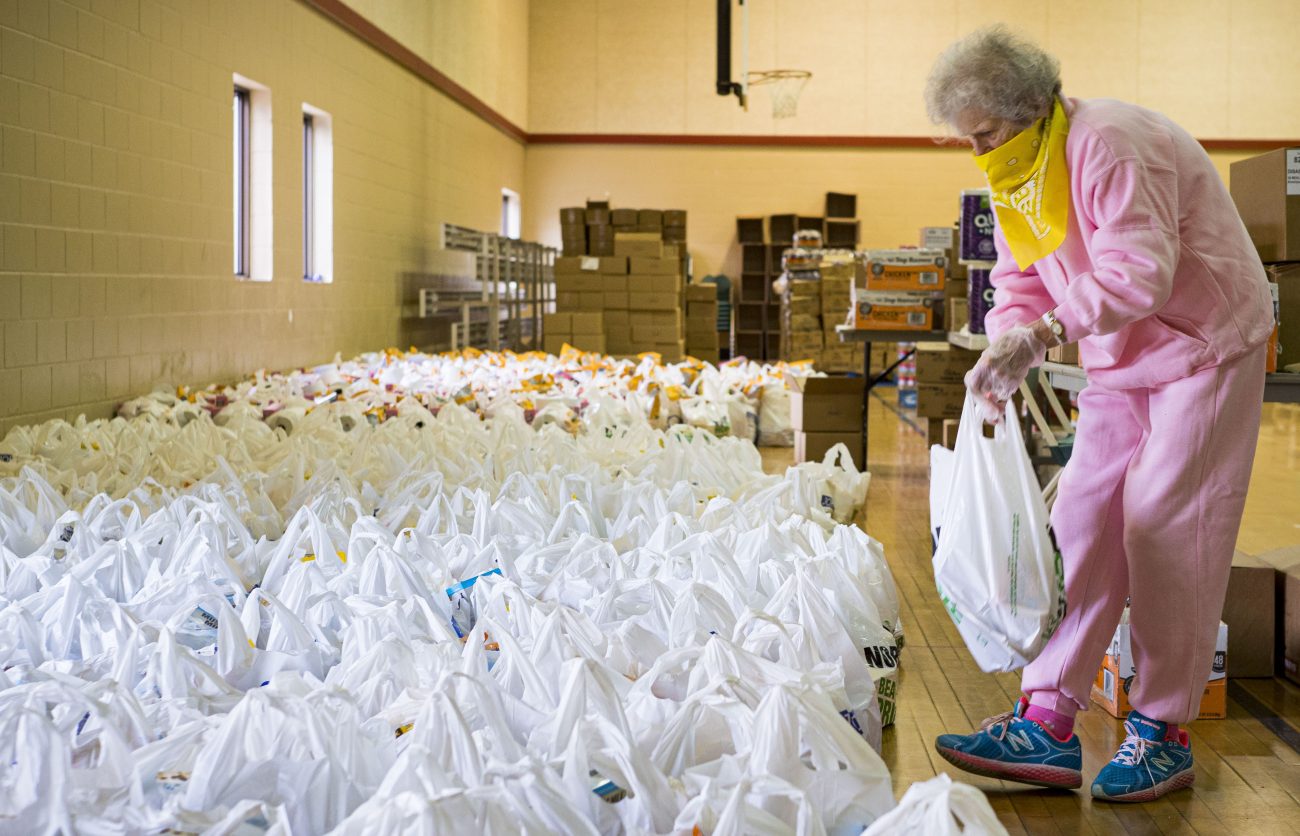
Des Moines, Iowa: Maria Cunningham sorts bags of food before a drive through emergency food distribution at First DSM Church. DSM has increased their food pantry from one day weekly to three days per week.
Jack Kurtz/ZUMA
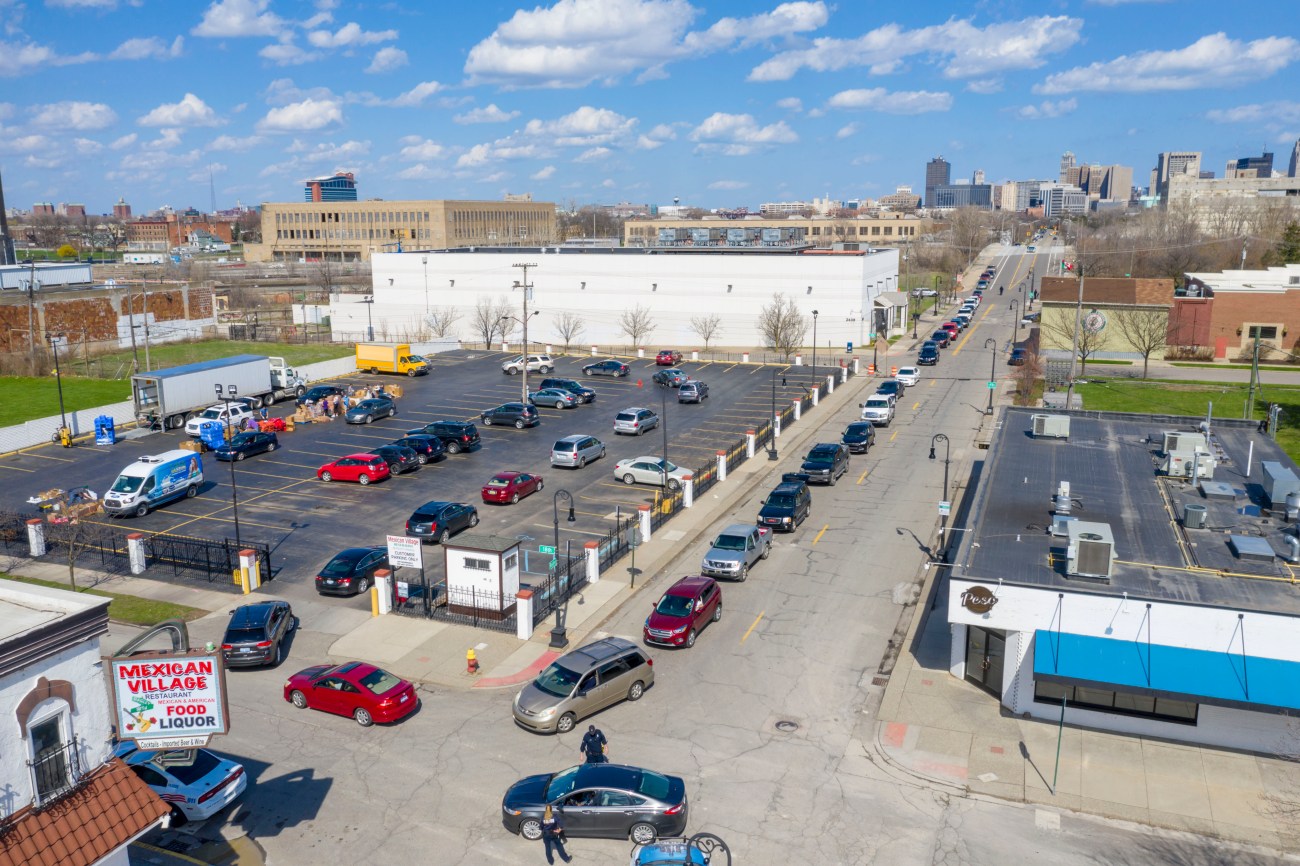
Detroit, Michigan: The Gleaners Community Food Bank distributes free food to residents in need in southwest Detroit.
Jim West/ZUMA
Sheila Christopher, director of Hunger-Free Pennsylvania, told the Guardian that she’s “been in this business over 30 years, and nothing compares to what we’re seeing now.” Jennifer McLean, the CEO of NYC’s City Harvest, told the New York Times that the need they’re seeing now dwarfs other crises like Hurricane Sandy and even September 11th.
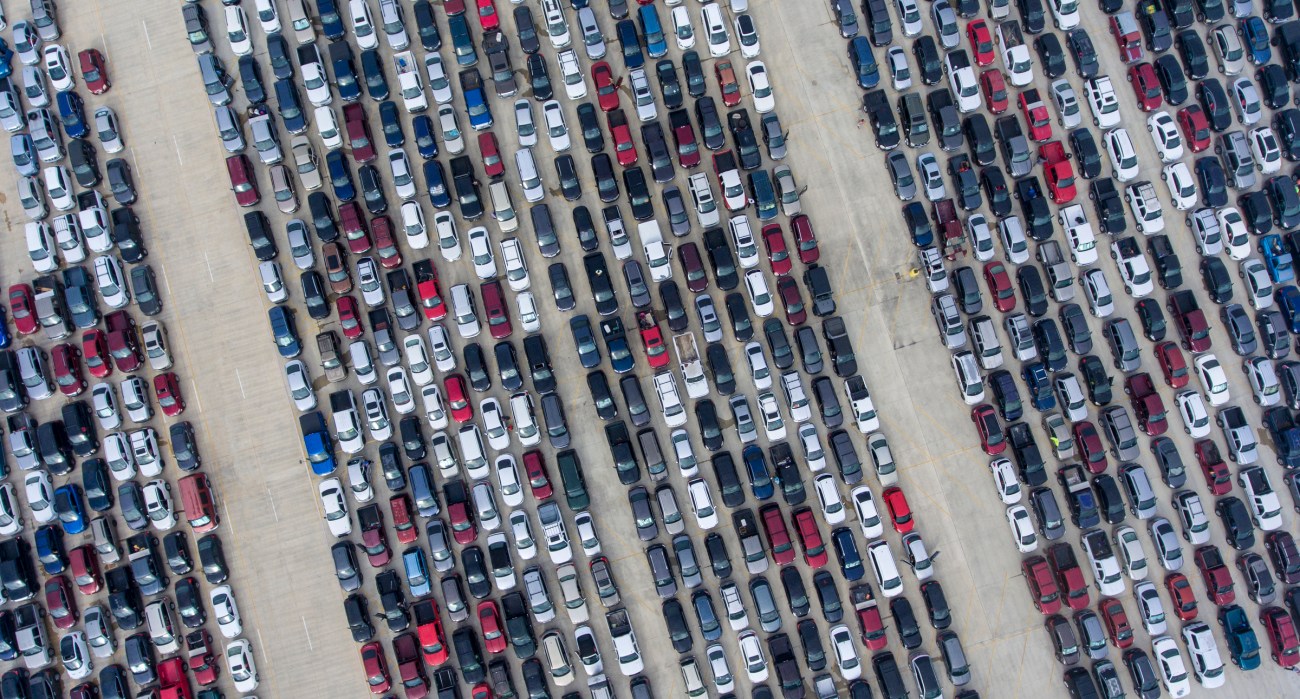
People wait in their cars Thursday, at Traders Village for the San Antonio Food Bank to begin food distribution. 10,000 people seek San Antonio Food Bank help.
William Luther/San Antonio Express News/ZUMA
But as more Americans find themselves relying on these organizations, those running these programs are facing the pandemic too. Dependent on volunteers, food banks across the country are coming up short on labor while people hunker down. In places like Washington state and Louisiana the National Guard has been called in to help with labor shortages. The Washington Post reported that many volunteer shifts have been canceled, because much of the labor that food banks rely on is comprised of retirees and senior citizens. To top it all off, Feeding America reported that they’ve seen a 64 percent decrease in donations.
The images are almost apocalyptic, flashing by in the collage of pictures that populate the intro to a sci-fi film. They’re also becoming frighteningly common.
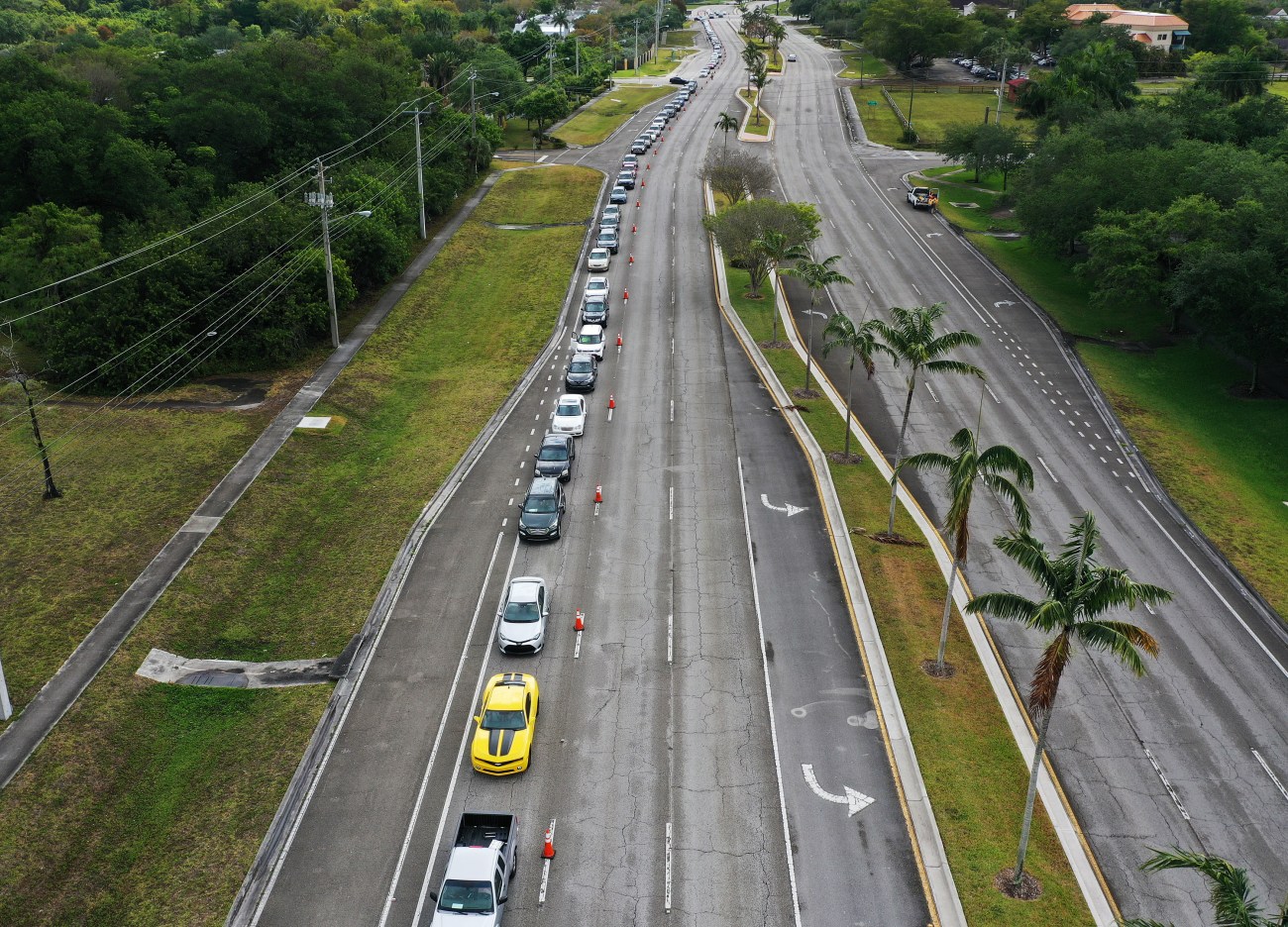
Sunrise, Florida: Feeding South Florida has seen a 600 percent increase in the those asking for food aid as people, some of whom have lost jobs, need to make ends meet during the coronavirus pandemic.
Joe Raedle/Getty




